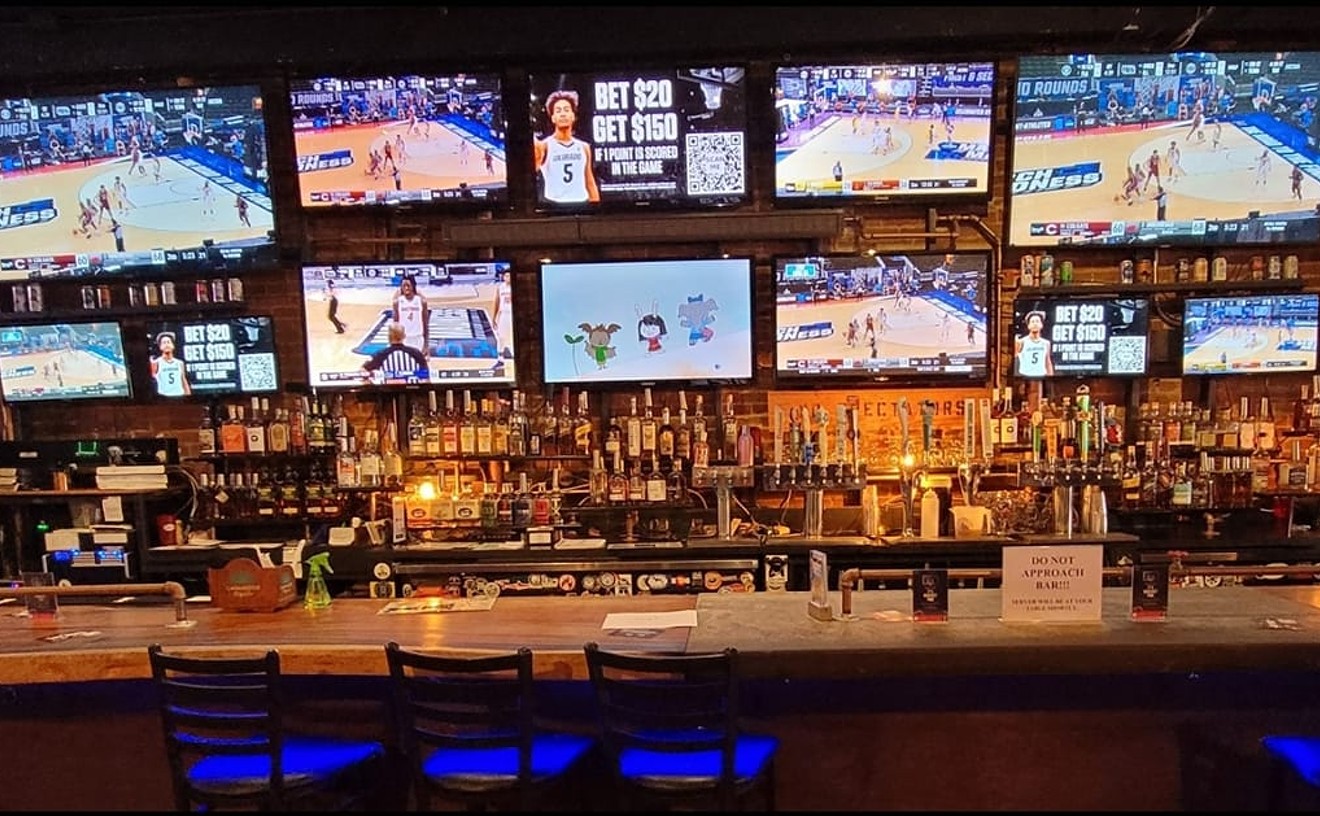Did this violate the city's health codes? Although a few spots in town have applied for exemptions to the code that requires gloves, in order to get such an exemption, you need to have a written plan in place -- and since this spot barely had a written menu, we were pretty sure there was no such plan. What should you do when you think you spot a violation? We contacted Denver Environmental Health to find out. See also: Check please! Keeping tabs on Denver's restaurant inspection policy
Over the past few years, the city has worked with restaurants to come up with new policies regarding inspections, as we reported in "Check Please" last March. The DEH does regular inspections of all the restaurants and other businesses that have food (7-Elevens, for example), but only does emergency inspections when reports of real health problems have been called in, often by the state Department of Public Health and Environment, and tracked to a specific restaurant.
Still, you can lodge complaints with DEH when you spot what you think is a violation. And there are a few red flags that can guide consumers looking for healthy -- and safe -- spots to eat. According to Denver Environmental Health, here are the five things to watch for:
1. Are staff practicing good hygiene? Are food handlers washing hands after touching their faces, hat, phone, money, door knobs or other soiled surfaces? Are employees covering any open wounds on hands/wrists/arms? Are sick employees restricted from handling food? Are employees using good hygienic practices? Are hand sinks stocked with soap and paper towels and used only for hand washing?
2. Are bare hands used for handling "ready-to-eat" foods? While there is an allowance in Denver's food safety regulations that lets restaurants create and follow a written plan enabling them to use bare hands on ready-to-eat foods, less than one percent of regulated food businesses have this allowance in place. ("Ready-to-eat" foods are those foods that will be consumed without going through a further cooking process.) Most of the time, if you see bare hands being used on ready-to-eat foods -- including drink garnishes, sandwiches, and salad ingredients -- this is a no-no. Instead, gloves, utensils like spoons or tongs, or deli tissue should be used by food handlers to prevent direct bare hand contact with the food. This is because even with proper hand washing, some viruses are potent enough to cause illness with very small doses that may remain on the hands after hand washing. On the other end of the spectrum, food handlers must change gloves -- and wash hands -- after the gloves touch sources of contamination. So if you see somebody changing taking the garbage out and then handling your food without changing their gloves, that's a practice that earns them a violation during an inspection.
3. Do employees eat or "graze" while preparing foods? That's a no-no.
4. Are foods adequately hot or cold when you receive them? Are animal products fully cooked? 5. Is the facility clean? Are there flies or evidence of other pests?
And as DEH communications director Meghan Hughes notes, you can always go to denvergov.org/phi to view inspection reports, including inspectors' descriptions of the violations, so that you can make an informed decision about where to eat. "The safest facilities minimize their Type 1 (otherwise known as "critical") violations, which correspond to the issues described above," she says. "Like us on Facebook to view a weekly list of facilities which receive inspections and have no Type 1 violations."
Follow @CafeWestword










